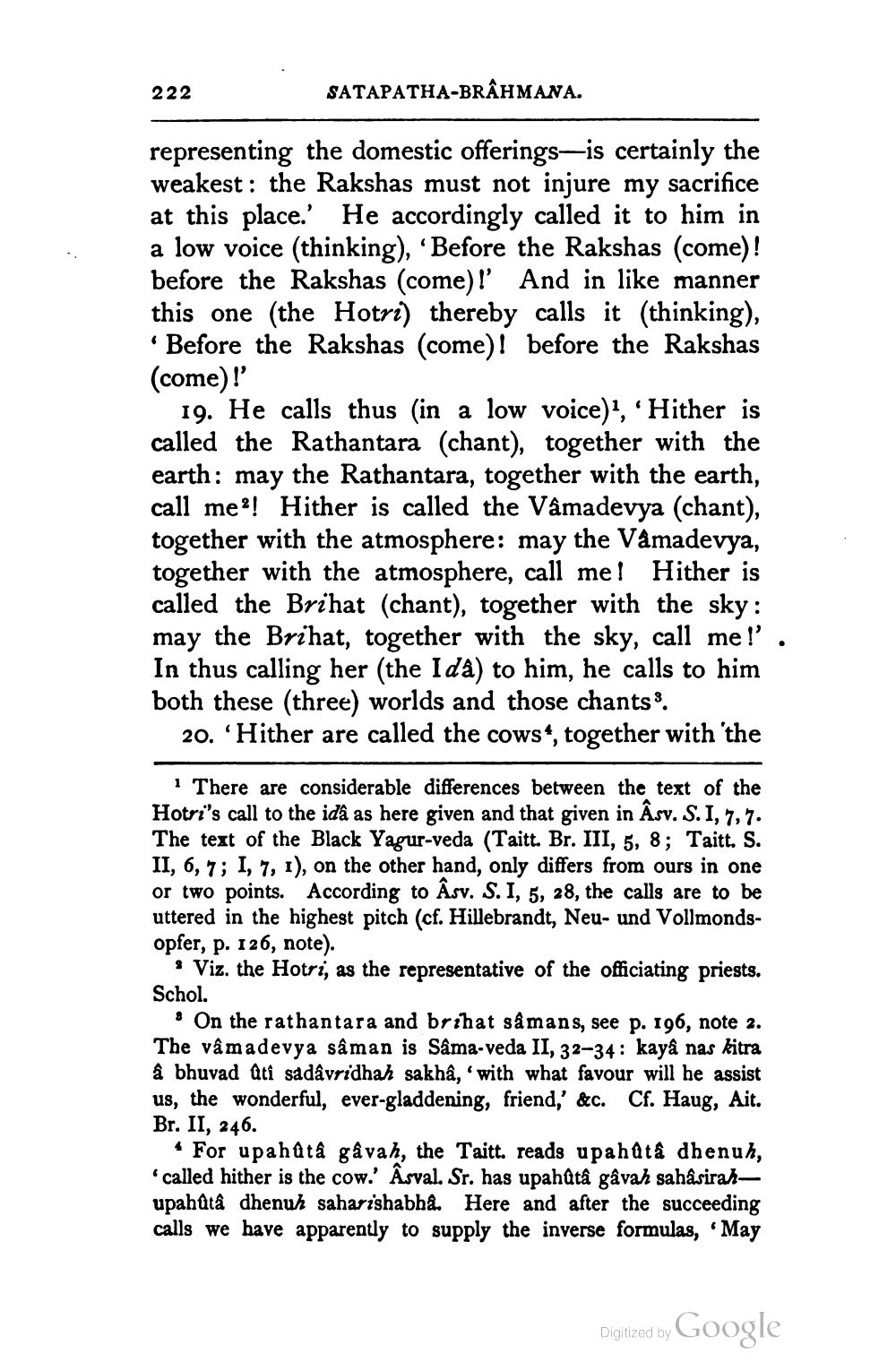________________
222
SATAPATHA-BRAHMANA.
representing the domestic offerings—is certainly the weakest : the Rakshas must not injure my sacrifice at this place. He accordingly called it to him in a low voice (thinking), ‘Before the Rakshas (come)! before the Rakshas (come)!' And in like manner this one (the Hotri) thereby calls it (thinking), * Before the Rakshas (come)! before the Rakshas (come)!
19. He calls thus (in a low voice)', 'Hither is called the Rathantara (chant), together with the earth: may the Rathantara, together with the earth, call me?! Hither is called the Vâmadevya (chant), together with the atmosphere: may the Vamadevya, together with the atmosphere, call me! Hither is called the Brihat (chant), together with the sky: may the Brihat, together with the sky, call me!'. In thus calling her (the Ida) to him, he calls to him both these (three) worlds and those chants :
20. 'Hither are called the cows, together with 'the
1 There are considerable differences between the text of the Hotri's call to the idâ as here given and that given in Âsv. S. 1,7,7. The text of the Black Yagur-veda (Taitt. Br. III, 5, 8; Taitt. S. II, 6, 7; I, 7, I), on the other hand, only differs from ours in one or two points. According to Âsv. S. 1, 5, 28, the calls are to be uttered in the highest pitch (cf. Hillebrandt, Neu- und Vollmondsopfer, p. 126, note).
• Viz. the Hotri, as the representative of the officiating priests. Schol.
• On the rathantara and brihat så mans, see p. 196, note 2. The vâmadevya sâman is Sama-veda II, 32-34: kaya nas kitra a bhuvad Qti sadavridhah sakha, with what favour will he assist us, the wonderful, ever-gladdening, friend,' &c. Cf. Haug, Ait. Br. II, 246.
. For upahûtâ gâvah, the Taitt. reads upahata dhenuh, called hither is the cow.' Asval. Sr. has upahatã gâvah sahâsira - upahůta dhenuh saharishabha. Here and after the succeeding calls we have apparently to supply the inverse formulas, May
Digitized by Google




